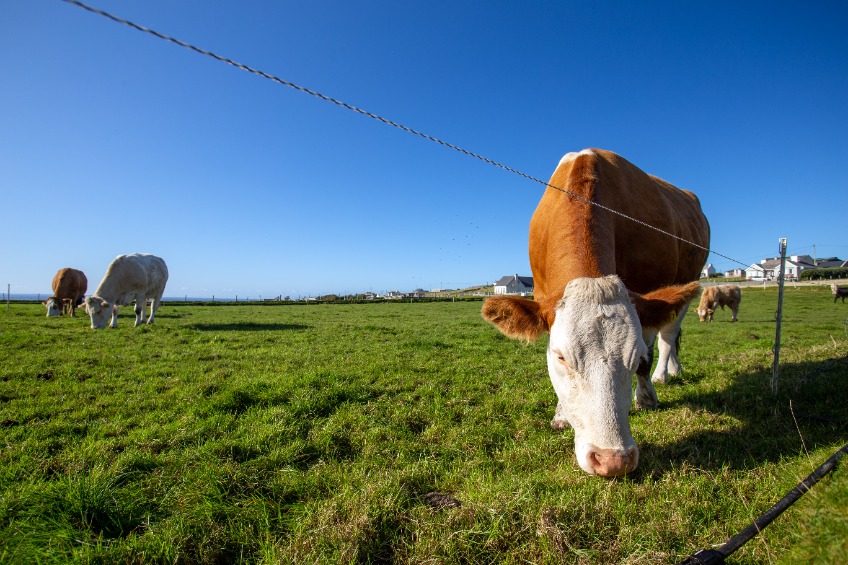
Ammonia proposals for Northern Ireland could reduce farm incomes by up to 38%, a new report warns.
Agriculture’s primary economic output could fall by up to £35m if NI-only ammonia restrictions went ahead, the research concluded.
The findings were published by accountancy firm KPMG, which looked at the Department of Agriculture's (DAERA) potential policy changes.
Industry groups such as the Ulster Farmers’ Union (UFU), Dairy Council for NI, and NI Meat Exporters Association commissioned KPMG to investigate.
The NI government is seeking to reduce total agricultural ammonia emissions by at least 30% from 2020 levels.
But the UFU, speaking on behalf of the groups, said the report shows that ammonia restrictions in planning could delay progression in reducing emissions and have severe consequences for the future of farming in the region.
UFU president David Brown said: "Ammonia is a very complex issue and our farmers are very aware of this, but these proposals have the potential to do the opposite of what is intended.
“The report shows that these harsher ammonia rules will mean that fewer planning applications will be successful, preventing hundreds of farmers from being able to develop and modernise sustainably so they can reduce emissions further.
"Many farmers have been actively embracing practical mitigation measures such as low emission slurry spreading equipment, feed formulations and fertiliser types.
"However, we are very concerned that necessary investments in improved housing and manure management facilities are likely to be significantly curtailed."
The report says that unsuccessful planning applications could lead to a fall in farm infrastructure investment between 20%-25% with consequences for the wider economy – agricultural construction is worth around £60-70m.
Without investment in farm infrastructure, farmers could struggle to introduce ammonia mitigation measures such as improved scrapers, slat mats in livestock sheds and covers for slurry pits.
When a farm's planning application is rejected, not only will this derail their morale to reduce ammonia emissions, but the cost will be significant for the business, the UFU said.
For dairy farmers, the report warns that income could drop by 21%, while it could reduce by 30% for beef farms and 38% for pigs enterprises.
"As a result, the farm would become inefficient, and it will be impossible for the business to remain competitive impacting NI’s ability to produce food locally," Mr Brown said.
"Our agri-businesses, rural economy, communities, and consumers will be severely affected by this too."
He added: "We need to find a more balanced way forward that allows farmers to develop and deliver ammonia reductions, ensuring farm families can maintain a viable business as food producers."
